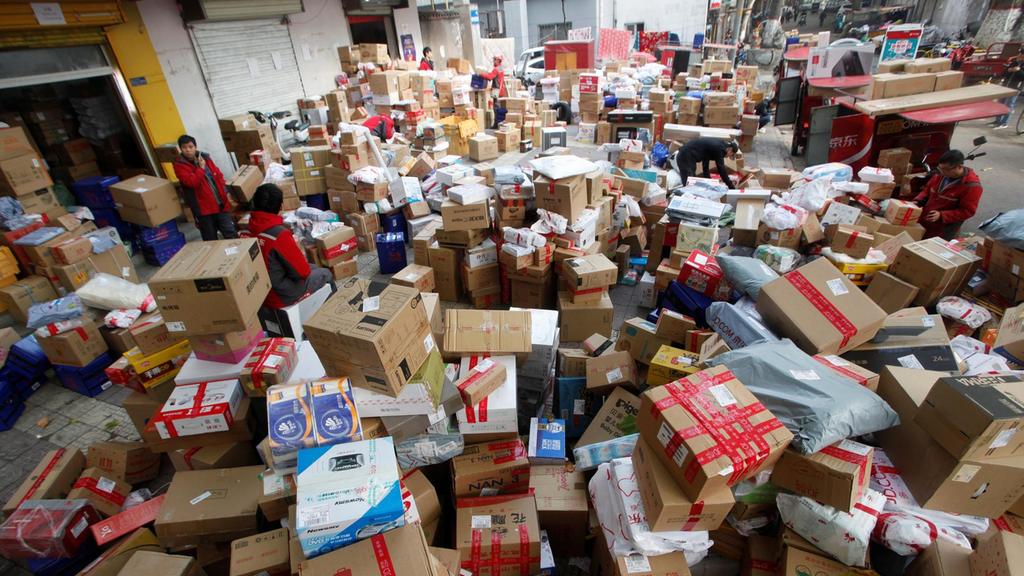Broken Promises: Parcels in China Still Manhandled Despite Prolonged Regulatory Efforts
In any given Chinese metropolis, it’s common to walk past delivery sorting points. These can be warehouses, repurposed storefronts, or even just an unused bit of public space. Also common is to see the deliverymen casually throwing parcels and packages around after reading the address information.
This was all caught on camera recently in Xizhimen, Beijing, by a person working next to the delivery sorting point.

When interviewed by a reporter, the STO staff says their “sorting method” has existed for years and that it shouldn’t be surprising.
According to the staff, items are well-packaged before sending out, and generally, it’s not easy to cause damage. “If you don’t want people to throw your package, then pay more. Buy the value-guarantee insurance service.”
Apparently, staff will deliver insured parcels hand-by-hand. Otherwise, staff will throw parcels without regard for the items inside
The violent sorting problem in China’s express delivery industry is not new. In fact, this has been a problem for some time.
In 2011, the State Post Bureau issued “Rules for Guiding the Operation of Express Business” (in Chinese: 快递业务操作指导规范). On May 1, 2018, Beijing launched Rules for Express Delivery (Provisional) (in Chinese: 快递暂行条例) to solve stubborn problems including consumer privacy, item loss, environmental-friendly packaging, and violent sorting.
The express delivery industry in China is booming due to the strong growth of e-commerce, but finding quality workers seems impossible for delivery companies already squeezed. In 2017, 40.1 billion parcels were delivered while the average express delivery service fee per package declined from RMB 18.5, 2012 to RMB 12.7, 2017. In that same year, 74.6% of express delivery staff monthly wage was between RMB 3,001 to RMB 5,000. However, in times of need, qualified delivery staff are hard to find.
During Alibaba’s Single’s Day shopping festival, Tmall alone saw over 800 million delivery orders. There were even recruitment advertisements offering a white-collar salary to hire any extra delivery labor force for the Single’s Day service.
It’s hard for Beijing to regulate the industry that is integrating massive resources in diverse geographical locations and complex social relations. According to state media People.cn, there are over 20,000 registered express delivery corporations and 2 million employees in the industry in China. Domestically, 217,000 delivery stations across villages and cities are sorting and delivering items.
However, a more embarrassing problem is the legal identification of a violation of relevant law or regulation. In December 2017, a Nanjing reporter forwarded evidence of violent sorting collected during an investigation to the market supervision department (市场监管处) of a local postal administration. After 2 days, the department replied that if there was any damage, the department would process the request. The department also explained, at that moment, there were no clear laws defining the “violence.” If there was no loss or damage, it was hard to find legal support to proceed into necessary formal punishment.
Images: thenational.ae, Beijing Evening News








